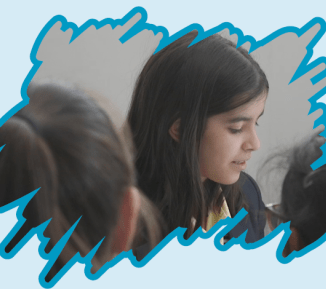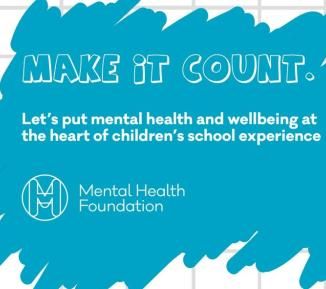
More and more schoolchildren are struggling to cope with their mental health.
Amidst rising rates of depression, anxiety and self-harm in children and young people, we launched our Make it Count campaign in 2018, because mental health is not extracurricular.
Good mental health is fundamental to being able to thrive in life. If we’re not tackling mental health problems early, then we risk failing the next generation right at the start of their lives.
With more and more schoolchildren struggling to cope with their mental health, we are campaigning to ensure every child in the UK receives an education with mental health at its heart.
We know there is no singular way for schools to provide such an environment. To make them mentally healthy places for all who attend and work in them, we need to pursue a “whole-school” approach to prevention.
Teachers, leadership, the curriculum, children and access to support all contribute to creating a mentally healthy, nurturing environment for children and young people. We are calling on the government and schools to address all these elements to deliver effective change.
Our top five asks
Peer education
Let’s help young people support one another and break down the stigma often associated with mental health by introducing a peer-led mental health programme in every school.
Training
Let’s give teachers the knowledge and confidence to make schools mentally healthy places by guaranteeing at least one day’s training a year on learning about children’s mental health.
Expert support
Let’s provide independent counsellors in every school to help give pupils the timely support they need.
Education
Let’s guarantee all school children a minimum of one hour a week of the new Health Education curriculum focused on how to stay mentally well and seek help, delivered by well-trained teachers.
Measurement
Let’s help school leaders understand what works by introducing a mental wellbeing measure in schools.
Why now?
Young people are facing unprecedented pressures in their lives, which are contributing to mental health problems including anxiety, depression, self-harm and eating disorders.
The Department for Education is currently consulting on the new Health Education curriculum for schools and we believe that now is the time to prevent a growing crisis in children’s mental health.
Key facts
- More than 1 in 10 children aged 10 to 15 say they have no one to talk to or wouldn’t talk to anyone in school if they feel worried or sad. This is the same proportion of children who have a diagnosable mental health problem.
- Research shows that 50% of mental health problems are established by the age of 14 and 75% are established by age 24.
- Young people in the UK are dealing with high levels of stress. This is largely due to pressure to succeed, body image and exams.
Guides for pupils, parents and teachers
Make it Count: Guide for pupils

Make it Count: Guide for parents and carers

Make it Count: Guide for teachers

What we are doing
Make it Count: Policy briefing

Podcast: Children's mental health and our Make it Count campaign
